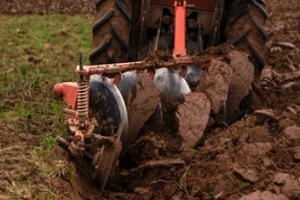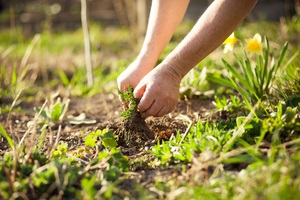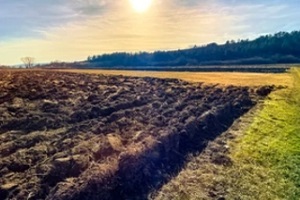 Tilling is a topic that inspires significant debate among gardeners. Till and no-till systems each come with their own set of advantages and disadvantages, and it is difficult to give a clear answer about which method is superior. The right choice will depend on the type of soil in your garden, the amount of garden space you have and several other factors. Therefore, it is important to keep your garden specifications as well as your objectives with your garden in mind when choosing the best approach.
Tilling is a topic that inspires significant debate among gardeners. Till and no-till systems each come with their own set of advantages and disadvantages, and it is difficult to give a clear answer about which method is superior. The right choice will depend on the type of soil in your garden, the amount of garden space you have and several other factors. Therefore, it is important to keep your garden specifications as well as your objectives with your garden in mind when choosing the best approach.
Here is a closer look at the advantages and drawbacks of tilling soil.
The Pros of Tilling Soil
Here is a look at the benefits of tilling your soil.
Tilling Aerates the Soil
One of the biggest advantages of tilling your soil is the fact that it will aerate it. When you loosen the soil in your garden, it gives newly germinated roots a solid footing while helping nutrients, oxygen and water reach the roots better so that your plants can thrive. In contrast, no-till systems create a bed that can experience excess runoff that carries away your topsoil and leaves crops dehydrated. The pockets in tilled soil are able to secrete water while allowing excess water to percolate down through the soil, which has the additional benefit of preventing sodden roots.
Tilling Can Help Eliminate Pests
Another advantage of tilling is its ability to disrupt some of the soilborne larvae and insects that can emerge from your garden in the spring and wreak havoc on your plants.
Tilling Can Warm Your Soil in the Spring
Many home gardeners are surprised to learn that tilled soil will warm more quickly in the spring, allowing you to get an earlier start on your growing season. It has this effect because it increases the air in the soil and stimulates aerobic bacteria activity, which helps organic matter break down more quickly and release heat as a form of energy.
Tilling Can Help Control Weeds
If weeds are a problem in your garden, tilling is well worth the effort as it can serve as a powerful method of weed control. Early spring tilling gives you the opportunity to cut up weeds while they are still young, which will prevent them from establishing a stronghold within your garden. Fall tilling, meanwhile, can reduce perennial weeds and stop them from retaining energy during the dormant winter period.
Tilling Provides an Opportunity to Amend Soil in the Fall
 Tilling your garden in the fall gives you an opportunity to amend your soil by adding organic matter from one of the best sources you can find: dying plants from the previous season. As these compost into your soil gradually, they will raise its nutrient levels. This type of compost, as well as grass clippings, leaf litter and other types of organic amendments, provide your plants with nitrogen and carbon, which are needed for good soil composition and will foster the growth of plants.
Tilling your garden in the fall gives you an opportunity to amend your soil by adding organic matter from one of the best sources you can find: dying plants from the previous season. As these compost into your soil gradually, they will raise its nutrient levels. This type of compost, as well as grass clippings, leaf litter and other types of organic amendments, provide your plants with nitrogen and carbon, which are needed for good soil composition and will foster the growth of plants.
The Cons of Tilling Soil
Here is a look at some of the reasons that you may want to avoid tilling your garden or stick to the minimum amount of tilling possible.
Tilling Can Create Hardpan
Tilling regularly or over-tilling can create a thick, dense layer of compacted soil known as hardpan that restricts the flow of nutrients and water through the soil. This layer arises as the small particles of soil that are created in the tilling process make their way down into the soil and compact. It can be very difficult to break up hardpan later. However, some types of soil are more susceptible to this problem than others.
Tilling Can Strip Nitrogen From Your Soil
Although tilling can help improve the composition of your soil in some ways, it can also have the effect of stripping nitrogen from it. Tilling exposes the small microorganisms that live under the top layer of soil to the sun, which causes them to die. This means they are unable to produce nitrogen that benefits your plants.
Tilling May Promote Erosion
Although tilling may sometimes be necessary, it is important to keep in mind that each time you till your garden, you are promoting further erosion by reducing the particle size of the soil. As a result, soil particles can be blown away more easily by the wind and washed away by the rain. This can lead to additional problems and create a greater need for fertilizer. It can also damage nearby waterways with runoff.
Tilling Can Dry Out Your Soil
Tilling destroys residue on the surface of your soil that can help keep nutrients and moisture within the soil. Many people find that skipping tilling results in healthier soil that is not as susceptible to drying out.
Tilling Takes Time and Energy
 For many people, tilling is simply not the best use of their time and energy, particularly those who have back problems or other physical conditions that prevent them from spending long hours in the garden. Some people find that their time is better spent on other measures that can give their garden an advantage.
For many people, tilling is simply not the best use of their time and energy, particularly those who have back problems or other physical conditions that prevent them from spending long hours in the garden. Some people find that their time is better spent on other measures that can give their garden an advantage.
Given the many advantages and drawbacks of tilling, many gardeners decide that using a light approach to tilling represents a good happy medium. Traditional tilling may be damaging to soil in the long run, but occasional tilling can be useful and even necessary in some cases, such as prior to growing vegetables or when areas with soil that has been depleted of nutrients need supplements. In these cases, a simple tractor till or hand tool can allow you to get some of the benefits of tilling while reducing the possibility of experiencing too many drawbacks.
Get in Touch With the Northern Virginia Soil Experts
If you want to ensure that your garden has high-quality soil, get in touch with the soil experts at Dirt Connections. We support individuals, businesses and contractors throughout the Northern Virginia area with our fill dirt delivery and residential remodeling services.
Summary

Dirt Connections was started with one goal in mind: providing quality residential and commercial construction services to clients on time and on budget. Reach out for more information on how we can support your next project.
For your convenience our estimates are free and by appointment. Call 703-940-9949 for a free estimate today!










































